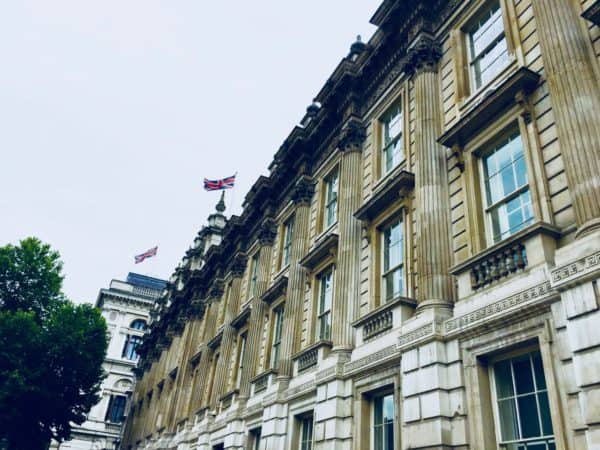
The Treasury Committee of the UK House of Parliament has launched an inquiry into digital currencies and distributed ledger technology – also commonly referenced as Blockchain.
According to a memo published by the Committee, the inquiry will cover the role of digital currencies in the UK, including the opportunities and risks that digital currencies may bring to consumers, businesses, and the Government. In general, the Committee will review the impact of Blockchain technology on financial institutions including the central bank.
As part of the review, the Treasury Committee expects to “scrutinize” responses from the Financial Conduct Authority, Bank of England and other Governmental agencies. Ostensibly, the intent is to encourage innovation without undermining investor protection. The UK is a recognized global leader in Fintech innovation and Blockchain and virtual currencies is an important aspect of Fintech.
 Rt Hon. Nicky Morgan MP, Chair of the Treasury Committee, commented on the digital currency announcement;
Rt Hon. Nicky Morgan MP, Chair of the Treasury Committee, commented on the digital currency announcement;
“People are becoming increasingly aware of cryptocurrencies such as Bitcoin, but they may not be aware that they are currently unregulated in the UK, and that there is no protection for individual investors. The Treasury Committee will look at the potential risks that digital currencies could generate for consumers, businesses, and Governments, including those relating to volatility, money laundering, and cyber-crime. We will also examine the potential benefits of cryptocurrencies and the technology underpinning them, how they can create innovative opportunities, and to what extent they could disrupt the economy and replace traditional means of payment. The distributed ledger technology that supports digital currencies is said to have significant transformative potential, not least within the financial services sector. Striking the right balance between regulating digital currencies to provide adequate protection for consumers and businesses, whilst not stifling innovation, is crucial. As part of the inquiry, we will explore how this can be achieved.”
[clickToTweet tweet=”‘Striking the right balance between regulating digital currencies to provide adequate protection for consumers and businesses, whilst not stifling innovation, is crucial’ #Blockchain” quote=”‘Striking the right balance between regulating digital currencies to provide adequate protection for consumers and businesses, whilst not stifling innovation, is crucial’ #Blockchain”]
Alison McGovern MP, Member of the Treasury Committee, added that the inquiry “comes at the right time” as governments wrestle with the emerging cryptocurrency markets;
“New technology offers the economy potential gains, but as recently demonstrated, it may also bring substantial risks. It is time that Whitehall and Westminster understood cryptocurrency better, and thought more clearly about the policy environment for blockchain technology.”
Paul Worrall, founder of Zonafide – a UK company that leverages Blockchain technology, commented on the Committee’s inquiry into cryptocurrency and distributed ledger technology;
“The government’s inquiry into digital currencies and distributed ledger technology comes at the right time. Distributed ledger technology, such as blockchain, provides a range of benefits as its secure, cost-effective and universally accessible. It has the potential to scale and completely revolutionise industries such as the public sector and financial services. While it is important to consider the risks associated with digital currencies, such as criminal activity, blockchain-based transactions are completely public, and we should all be exploring its potential to automate controls to minimise the use of digital currencies for criminal activity.”
The description of the inquiry is reproduced below.
Scope of the inquiry
The inquiry will cover the role of digital currencies in the UK, including the opportunities and risks that digital currencies may bring to consumers, businesses, and the Government
It will examine the potential impact of distributed ledger technology—such as blockchain—on financial institutions, including the central bank, and financial infrastructure.
It will also scrutinise the regulatory response to digital currencies from the Government, the Financial Conduct Authority, and the Bank of England, and how regulation could be balanced to provide adequate protection for consumers and businesses without stifling innovation.
Terms of Reference
This inquiry will examine the use of digital currencies and distributed ledger technology in the UK. The inquiry will cover:
- The role of digital currencies in the UK, including the opportunities and risks digital currencies may bring to consumers, businesses and the Government (and associated bodies).
- The potential impact of distributed ledger technology on financial institutions, including the central bank, and financial infrastructure.
- The regulatory response to digital currencies from the Government, the FCA and the Bank of England in relation to Anti-Money Laundering legislation and how regulation could be balanced to provide adequate protection for consumers and businesses without stifling innovation.
Some of the key questions the Committee will consider in this inquiry include:
- Are digital currencies ultimately capable of replacing traditional means of payment?
- To what extent could digital currencies disrupt the economy and the workings of the public sector?
- What risks and benefits could digital currencies generate for consumers, businesses and governments?
- How is distributed ledger technology being applied in the financial services sector, and how might it be applied in future?
- What work has the Government (and its associated bodies) done to understand, prepare for and, where relevant, encourage changes that may be brought about by increased adoption of digital currencies?
- How might the Government’s processes adapt should digital currencies be adopted more widely (e.g. tax implications, anti-money laundering measures)?
- Is the government striking the right balance between regulating digital currencies to provide adequate protection for consumers and businesses whilst not stifling innovation?
- Could regulation benefit digital currency start-ups by improving consumer trust?
- How are governments and regulators in other countries approaching digital currencies and what lessons can the UK learn from overseas?

